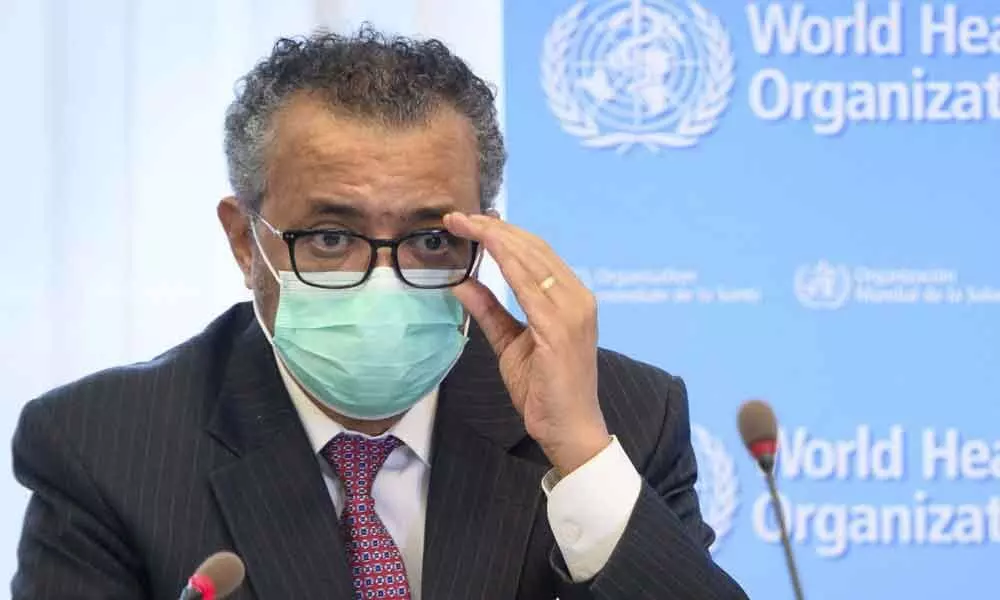WHO chief calls for cooperation, financing to end Covid pandemic

World Health Organization Director-General Tedros Adhanom Ghebreyesus
The World Health Organization's (WHO) Director-General Tedros Adhanom Ghebreyesus has called for cooperation and collaboration in the face of common threats from the Covid-19 pandemic.
Munich: The World Health Organization's (WHO) Director-General Tedros Adhanom Ghebreyesus has called for cooperation and collaboration in the face of common threats from the Covid-19 pandemic.
The WHO chief made the remarks on Friday at a panel discussion titled "Get Well Soon: Finding a Way Out of the Pandemic" during the ongoing Munich Security Conference (MSC) here, reports Xinhua news agency.
He described as "dangerous" the narrative that the pandemic was over with high vaccine coverage in some countries and denied claims that the Omicron variant was less severe.
Tedros recalled that 70,000 people were dying each week from a preventable and treatable disease; that 83 per cent of the population in Africa was yet to receive a single Covid-19 vaccine dose; and that the healthcare systems across the world continued to strain and crack under the caseload.
"In fact, the conditions are ideal for more transmissible, more dangerous variants to emerge," he said.
"We can end the Covid-19 pandemic as a global health emergency this year. We have the tools. We have the know-how."
Tedros called on all countries to fill the urgent financing gap of $16 billion for the Access to Covid-19 Tools (ACT) Accelerator to make vaccines, tests, treatments and personal protective equipment available globally.
The ACT-Accelerator was established in April 2020, just weeks after the pandemic was declared, to speed up the development and access to Covid-19 tests, treatments and vaccines. The global vaccine solidarity initiative COVAX is one of its four pillars.
"Compared with the costs of another year of economic turmoil, 16 billion dollars is, frankly, peanuts," he said.
According to Tedros, substantial resources for strengthening global health security were needed both nationally and globally. "Ending this pandemic must remain our focus. At the same time, we must learn the lessons it is teaching us".
He emphasised that any effort to strengthen the global health security architecture could only succeed by attaching importance to the role of the WHO rather than creating new mechanisms, which he believed would only create further fragmentation and potentially leave the world less safe.
Confusion and incoherence have fuelled the pandemic, he said, stressing that "we need cooperation and collaboration in the face of common threats". Stronger systems and tools are required to prevent, detect and respond rapidly to epidemics and pandemics.
Tedros concluded his speech by giving an answer to the question he raised at the beginning -- when will the Covid-19 pandemic end?
"It will end when we choose to end it. Because, ultimately, it's not a matter of chance, it's a matter of choice," he said.
The three-day MSC was opened on Friday with a theme focusing on "unlearning helplessness". There is a mounting feeling of "helplessness" in many societies across the world in the face of a growing number of crises and conflicts, according to a security report published ahead of the conference.
















